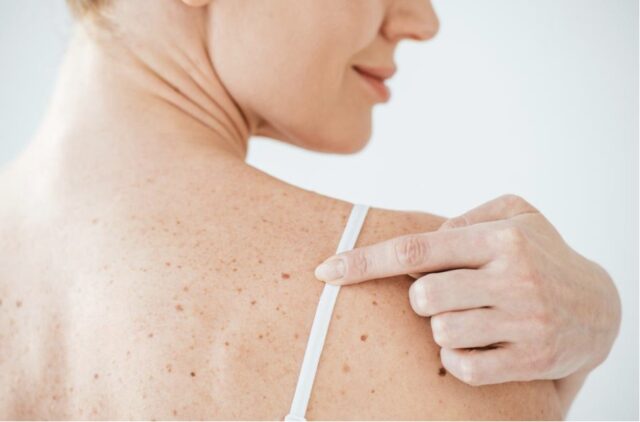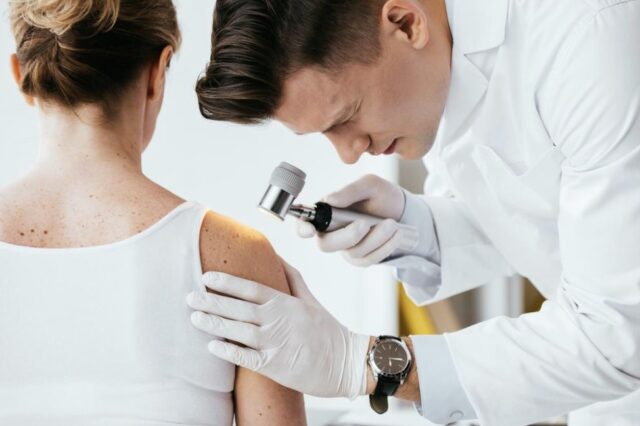Welcome to our Skin Cancer Clinic. Here at our clinic, we provide comprehensive care for skin cancer patients and their families. Our team of highly trained professionals specializes in the diagnosis, treatment, and follow-up care of all types of skin cancers. From early detection and prevention to advanced treatment options, our team is committed to providing quality care that is tailored to meet the individual needs of each patient. With state-of-the-art technology and a compassionate staff, we strive to deliver the best possible outcome for every single patient.

Symptoms and Causes of Skin Cancer
Skin cancer is the most common type of cancer in the United States, with more than 5.4 million cases diagnosed each year. Skin cancer can affect anyone, regardless of gender, age or race. It is important to understand the different types of skin cancers and their symptoms to diagnose and treat them early on. Make sure you visit your skin cancer clinic Melbourne for further information.
Types of Skin Cancers
There are three main types of skin cancers: basal cell carcinoma (BCC), squamous cell carcinoma (SCC), and melanoma. BCCs are slow-growing tumours that rarely spread beyond the original site on the body and are often found on parts exposed to the sun such as the face, head or neck areas. SCCs may look similar to BCC but spread more quickly if untreated; they usually appear on areas such as hands or arms that have had a lot of sun exposure over time. Melanomas usually appear as dark spots or moles that are either new or changed in size, shape or colour; they grow quickly and can spread throughout your body if left untreated.
Diagnosis & Treatment Options
Skin cancer is one of the most prevalent types of cancer in the United States, and it is important to be aware of its diagnosis and treatment options. This article will provide an overview of diagnostic procedures for skin cancer detection and treatment options for skin cancer.
Diagnostic Procedures for Skin Cancer Detection
The first step in diagnosing skin cancer is performing a physical examination by a dermatologist or other healthcare provider who specializes in skin diseases. During the physical examination, your doctor will closely inspect your skin, looking for any changes that may suggest a possible tumour or other abnormality. They may also use tools such as magnifying glasses to check areas that are difficult to see with the naked eye like moles or freckles. Additionally, they may take photographs of suspicious areas as reference points during future exams. If anything looks abnormal to them, they will often biopsy (remove) it to obtain tissue samples which can then be analyzed under a microscope for signs of malignancy (cancer).
Your doctor may also use imaging tests such as X-rays or CT scans if they think there’s something unusual going on inside your body that might explain why you have visible changes on your skin’s surface.

Prevention & Care Tips to Reduce Risk of Developing Skin Cancer
Skin cancer is a very common and serious diagnosis that can have serious consequences if not treated early and correctly. Fortunately, there are steps people can take to reduce their risk of developing this condition.
1. Sun Protection Measures:
The most important thing someone can do to lower their risk of developing skin cancer is to protect themselves from the sun’s harmful UV rays. This includes avoiding direct sunlight during peak hours (10 am-4 pm) when the sun’s UV rays are strongest, wearing protective clothing like long-sleeved shirts, hats, and sunglasses when outside for prolonged periods, using sunscreen with an SPF 30 or higher even on cloudy days, avoiding tanning beds and sun lamps altogether as they emit dangerous UV radiation that has been linked to skin cancer.
2. Regular Self-Examinations & Checkups with a Dermatologist:
It’s also important for individuals to regularly examine their skin for any changes in moles or other marks as well as schedule regular checkups with a dermatologist who will be able to identify any potential problems or suspicious areas before they become more serious or develop into something worse like skin cancer.
Conclusion
The Skin Cancer Clinic is an invaluable resource for anyone who wants to protect themselves from the devastating effects of skin cancer. The clinic offers a wide range of services and treatments, from preventative screenings to mole removal surgery. With the help of knowledgeable staff and cutting-edge technology, they can provide individuals with the tools they need to maintain healthy skin and detect any potential issues before they become serious. By taking advantage of all that this clinic has to offer, patients can rest assured that their skin health is in good hands.











